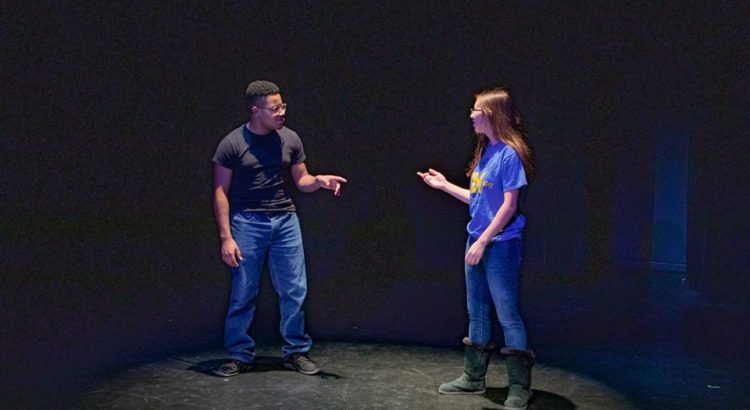A while back, one of my blog posts focused on the topic of race in drama. The inspiration for that discussion were my experiences in a class that—here’s a big surprise—examined race in drama. The class? RCHUMS 390: Contemporary Plays on Race in America.
When you think of plays by American playwrights, you might think of plays such as Tony Kushner’s Angels in America or Arthur Miller’s Death of a Salesman. These works are often considered examples of America’s greatest plays—Arthur Miller was a U of M graduate, after all—so your thought process would be understandable. What I challenge you to do, however, is to consider reading or learning about American plays by playwrights of color.
As my professor, Kate Mendeloff, was exploring contemporary plays a few years ago, she discovered that some of the most poignant and interesting works she came across were written by playwrights of color surrounding topics such as race and disparity. Inspired by the discovery, she created the class to bring attention to talented playwrights of color and their works.
Just as the title suggests, my drama class had us study contemporary plays on race in America and other works by playwrights of color. The course included reading works representing a variety of identities, discussing them in class, and acting out scenes from several of the plays. It was interesting analyzing how the characters’ racial and ethnic identities impacted their stories and interactions with other characters. Immigration, drug addiction, and intercultural relationships were some of the topics addressed by the plays in class. They also tackled a variety of time periods and issues, such as the 1967 Detroit riots (Spirit of Detroit by Mercilee Jenkins, Detroit ’67 by Dominique Morisseau).
Facing Our Truth: Ten Minute Plays on Trayvon, Race and Privilege was a collection of plays written by six diverse playwrights as a reaction to the George Zimmerman verdict, while Flint by SMTD faculty member and playwright José Casas explored the water crisis through narratives based on the people affected by the city’s tragedy.
As our final project, our class presented a public performance to feature what we learned and worked on throughout the semester. Some students presented original monologues that illustrated personal experiences on race and privilege, while others presented mashups of monologues from Lorraine Hansberry’s famous A Raisin in the Sun and Joshua Harmon’s plays titled Admissions and Bad Jews. There were also scenes excerpted from plays read in class, like Pilgrims Musa and Sheri in the New World by Yussef El Guindi.
Overall, the class was both enjoyable and educational. I challenge you to give one of the mentioned plays a try and comment your reaction below!

Photo Credit: Robby Griswold
Check out the RC for more classes and awesome opportunities!


